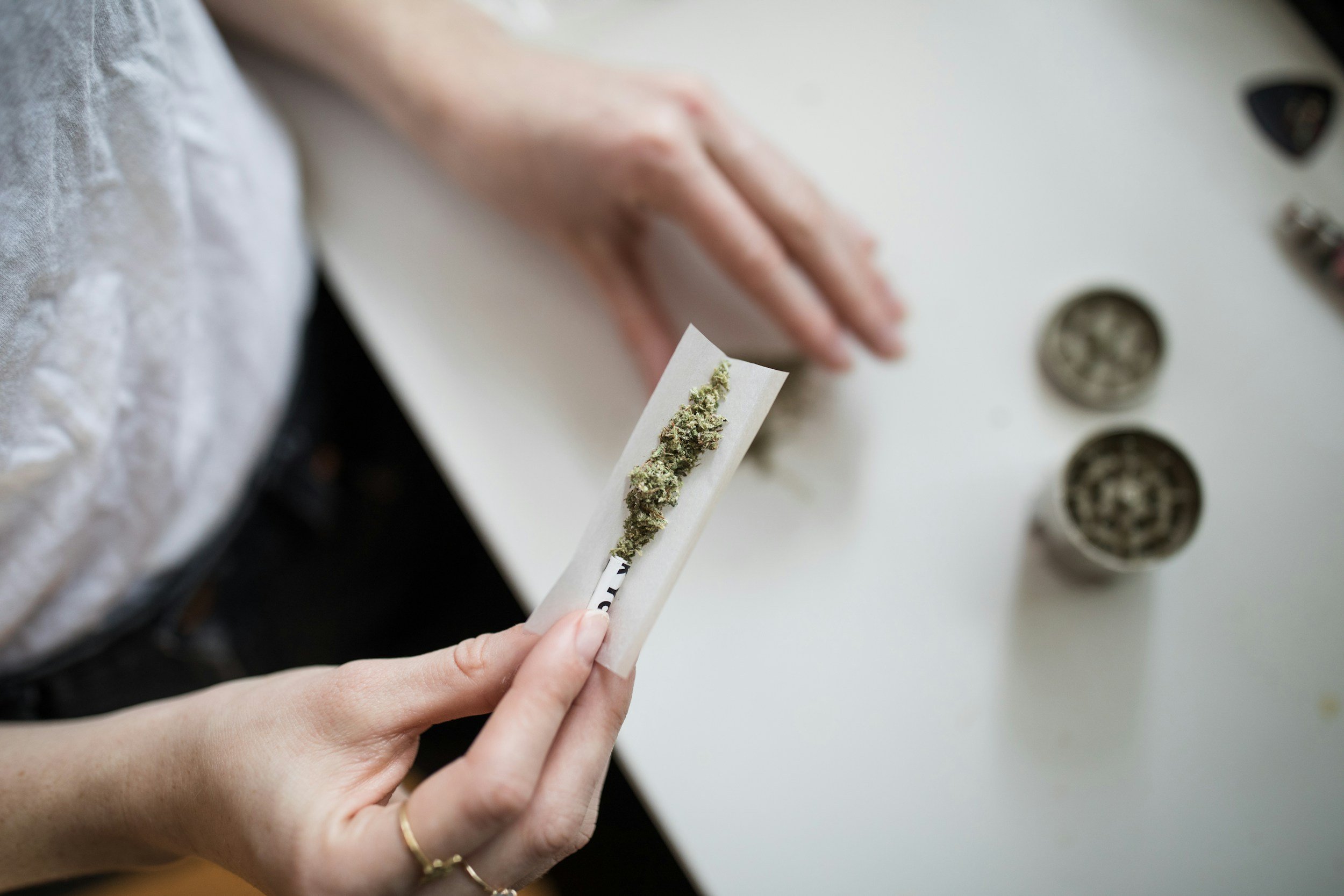
CBD - Frequently Asked Questions
Is cannabis legal in Tennessee?
As of August 2024, cannabis is not fully legal in Tennessee. However products derived from hemp with less than 0.3% THC are legal, provided they comply with federal regulations. However, Delta-8 THC is legal in Tennessee. Delta-8 THC is a cannabinoid found in cannabis, and it is often marketed as a legal alternative to Delta-9 THC, the primary psychoactive compound in marijuana.
The legality of Delta-8 THC in Tennessee is based on its classification under state and federal law. Delta-8 THC is typically derived from hemp, and under the 2018 Farm Bill, hemp-derived cannabinoids with less than 0.3% Delta-9 THC are legal at the federal level. This has led to the legal status of Delta-8 THC in many states, including Tennessee.
What is the flower you are selling then?
THCa flower is often treated differently from THC-rich cannabis under various laws. THCa (tetrahydrocannabinolic acid) is the non-psychoactive precursor to THC, the primary psychoactive compound in cannabis. When cannabis is raw or unheated, it primarily contains THCa, which converts to THC through decarboxylation (usually by heating or smoking).
Here’s a breakdown of its legal status:
Federal Law: Under the 2018 Farm Bill, hemp-derived cannabis products with less than 0.3% Delta-9 THC are federally legal. Since THCa does not convert to Delta-9 THC until it is heated, THCa flower could be interpreted as legal under this provision. However, this is a somewhat gray area and not explicitly addressed in the Farm Bill.
State Law: The legality of THCa flower can vary significantly by state. Some states may consider THCa flower legal as long as it meets the criteria for hemp products, while others may have specific regulations or restrictions. States with stringent cannabis laws might classify THCa flower similarly to THC-rich cannabis. Gras Haus only carries the legal stuff.
I’m new to cannabis, what do I get?
We are the perfect place for beginners and seasoned pros. My personal favorite for beginners is our 2mg drinks. Come in and our Gras Guide can help you find the perfect plants for you. We have microdosing products for newbies, so you can see if cannabis is for you. If it is not, we have so many other routes you can take with us. No judgement here.
What products do you carry?
So many! Flower, pre-rolls, vapes, canned drinks, non-alcoholic spirits, tinctures, gummies and more!
What is a COA?
In the cannabis industry, a COA stands for Certificate of Analysis. It is a document provided by a third-party lab that tests cannabis products for their chemical composition, including cannabinoid and terpene levels, as well as for contaminants like pesticides, heavy metals, and microbial impurities. The COA ensures that the product meets safety and quality standards and provides transparency to consumers about what they are consuming.
What is the difference between THC and CBD?
THC (tetrahydrocannabinol) and CBD (cannabidiol) are two of the most well-known cannabinoids found in the cannabis plant. Here are the primary differences between the two:
Psychoactive Effects:
THC: THC is the main psychoactive compound in cannabis, responsible for the "high" feeling. It binds to cannabinoid receptors in the brain, producing effects such as euphoria, altered sensory perception, and increased appetite.
CBD: CBD is non-psychoactive, meaning it does not produce a high. It does not bind to cannabinoid receptors in the same way as THC and often counteracts some of THC's psychoactive effects.
Medical Benefits:
THC: THC has several potential medical uses, including pain relief, muscle relaxation, appetite stimulation, and reducing nausea. It is often used in treating conditions such as chronic pain, glaucoma, and cancer-related symptoms.
CBD: CBD is noted for its potential anti-inflammatory, anti-anxiety, and seizure-suppressant properties. It is commonly used for conditions like epilepsy, anxiety, chronic pain, and inflammation.
Mechanism of Action:
THC: THC primarily interacts with CB1 receptors in the brain, which are part of the endocannabinoid system.
CBD: CBD has a more complex mechanism of action. It interacts with various receptors in the brain and body, including CB1 and CB2 receptors, serotonin receptors, and others. It is thought to influence the body's natural endocannabinoid system indirectly.
What is a terpene?
Terpenes are a large and diverse class of organic compounds produced by various plants, including cannabis, and some insects. They are the primary constituents of essential oils and contribute to the scent, flavor, and color of the plant. In cannabis, terpenes work alongside cannabinoids like THC and CBD to influence the plant's effects. Here are some key points about terpenes:
Aromatic Compounds: Terpenes are responsible for the distinctive aromas of many plants. For example, the scent of pine trees is due to the terpene pinene, and the smell of citrus fruits comes from limonene.
Function in Plants: Terpenes play several roles in plants, including deterring herbivores, attracting pollinators, and protecting the plant from environmental stressors.
Effects on Humans:
Therapeutic Benefits: Some terpenes are believed to have therapeutic properties, such as anti-inflammatory, anti-anxiety, and pain-relief effects. For instance, linalool, found in lavender, is known for its calming and anti-anxiety effects.
Synergistic Effects: In cannabis, terpenes interact with cannabinoids to produce the "entourage effect," where the combined effect of cannabinoids and terpenes is greater than the sum of their individual effects. This means terpenes can modulate and enhance the effects of THC and CBD.
Common Terpenes in Cannabis:
Myrcene: Has an earthy, musky scent with hints of fruit. It's known for its relaxing and sedative effects.
Limonene: Has a citrus scent and is thought to elevate mood and provide stress relief.
Pinene: Smells like pine and is believed to improve focus and alertness.
Linalool: Has a floral scent similar to lavender and is known for its calming and anti-anxiety effects.
Caryophyllene: Has a spicy, peppery scent and is unique among terpenes for its ability to interact with cannabinoid receptors directly, providing potential anti-inflammatory effects.
Understanding terpenes can help you choose cannabis strains or products based on their desired effects and flavors.
